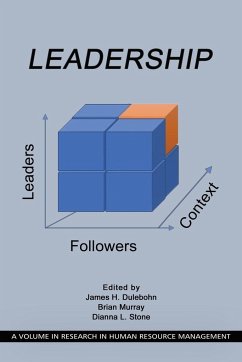As we enter the third decade of the twenty-first century, we are seeing a renaissance of context in influencing leadership, leader-follower relations, and leader effectiveness as well as a recognition of the tripartite nature of leadership. To fully understand and appreciate leadership, one must see the multiple parts of it as well as the connections among them. Leadership is multi-dimensional; leadership depends on leaders, followers, and context. Leadership research in the past three decades has been dominated by interest in neo-charismatic leadership styles and a focus on leader-member exchange in leader-follower relationships. Recently other approaches to leadership, such as ethical and authentic leaders, have garnered greater attention in response to the moral and ethical challenges in the workplace. Additionally, established approaches to leadership emergence and development have been challenged by their relevance to diverse work forces and issues of inclusion. This twelve article volume includes an outstanding roster of established and emerging leadership authors who tackle questions of leadership at the intersections of leaders, followers, and context. The volume opens with two articles that set the stage for the current state of leadership research and paths for its future including a commentary by Edwin Locke and Gary Latham on current management research practices and an action-oriented review of leadership research from the start of the 21st century. The volume is organized around three themes: leadership and diversity, leader-follower relationships, and systems of leader, follower, and context. Articles in the volume advance diversity research with an integration of leadership and diversity theories that demonstrate the former's need for re-examination in light of the latter, a systematic development of inclusive leadership theory, and a close examination of immigrant ethnic identity. The authors of several articles expand our understanding of leader-follower relationships in the context of teams and alliances, the contextual boundaries of authentic leadership theory, and the authentic leader's potential impact on harassment in organizations. The volume culminates with three demonstrations of leadership as systems of leader-follower-context interaction, including a close examination of the toxic triangle's manifestation in university scandals, a micro-process model of power and leadership, and a configurational approach to studying leadership. The volume is designed primarily for scholars in the fields of human resource management, organizational behavior, and leadership. It also well serves the needs of instructors and students in master's and doctoral courses in leadership or organizational behavior. Each article is grounded in managerial context that will appeal to practitioners in the field.
Hinweis: Dieser Artikel kann nur an eine deutsche Lieferadresse ausgeliefert werden.
Hinweis: Dieser Artikel kann nur an eine deutsche Lieferadresse ausgeliefert werden.

